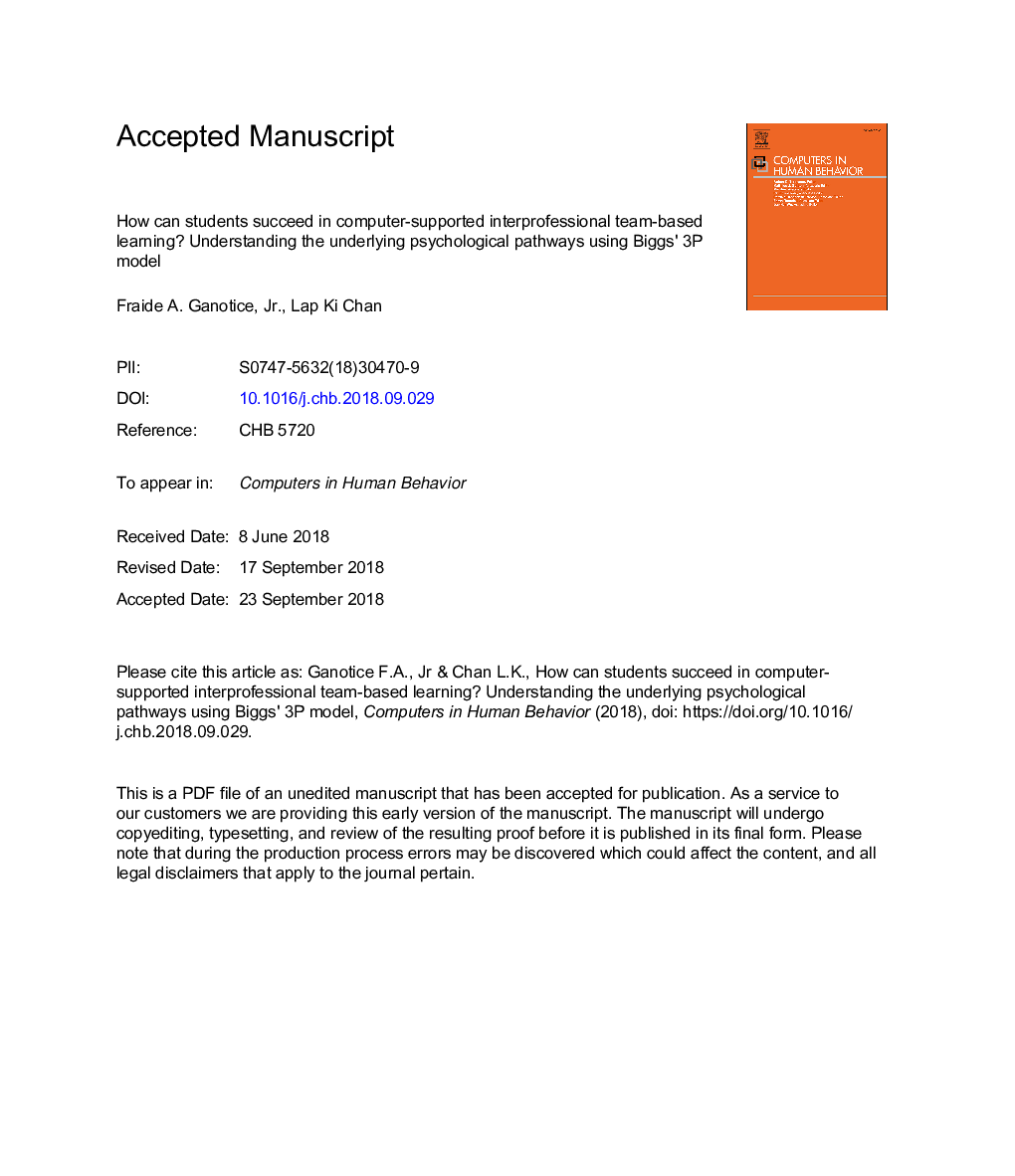| Article ID | Journal | Published Year | Pages | File Type |
|---|---|---|---|---|
| 11024019 | Computers in Human Behavior | 2019 | 38 Pages |
Abstract
Adopting Biggs' (2003) 3P (presage, process, product) model, this study examined the role of individual preparedness, member's contribution, motivation, enjoyment in students' learning, readiness for interprofessional learning, and attainment of desired outcomes in the context of computer-supported interprofessional team-based learning (CS-IPTBL). A sample of 531 health and social care students (Chinese medicine, medicine, nursing, pharmacy, occupational therapy, and social work) from two universities in Hong Kong participated in the study. Mediational analysis showed that task value (motivation and enjoyment) and utility (perceived usefulness) played a significant mediating role between perceived preparedness and perceived individual contribution and outcomes. The study enriched the extant research by showing possible pathways that determined students' achievement in CS-IPTBL. Findings suggest that students' achievement (product) in CS-IPTBL is influenced by their motivation, enjoyment, and perceived usefulness (process) which were derived from two sources: individual preparedness and members' valuable contribution (presage). Key findings and their implications for program enhancement and teaching are provided.
Related Topics
Physical Sciences and Engineering
Computer Science
Computer Science Applications
Authors
Fraide A. Jr., Lap Ki Chan,
